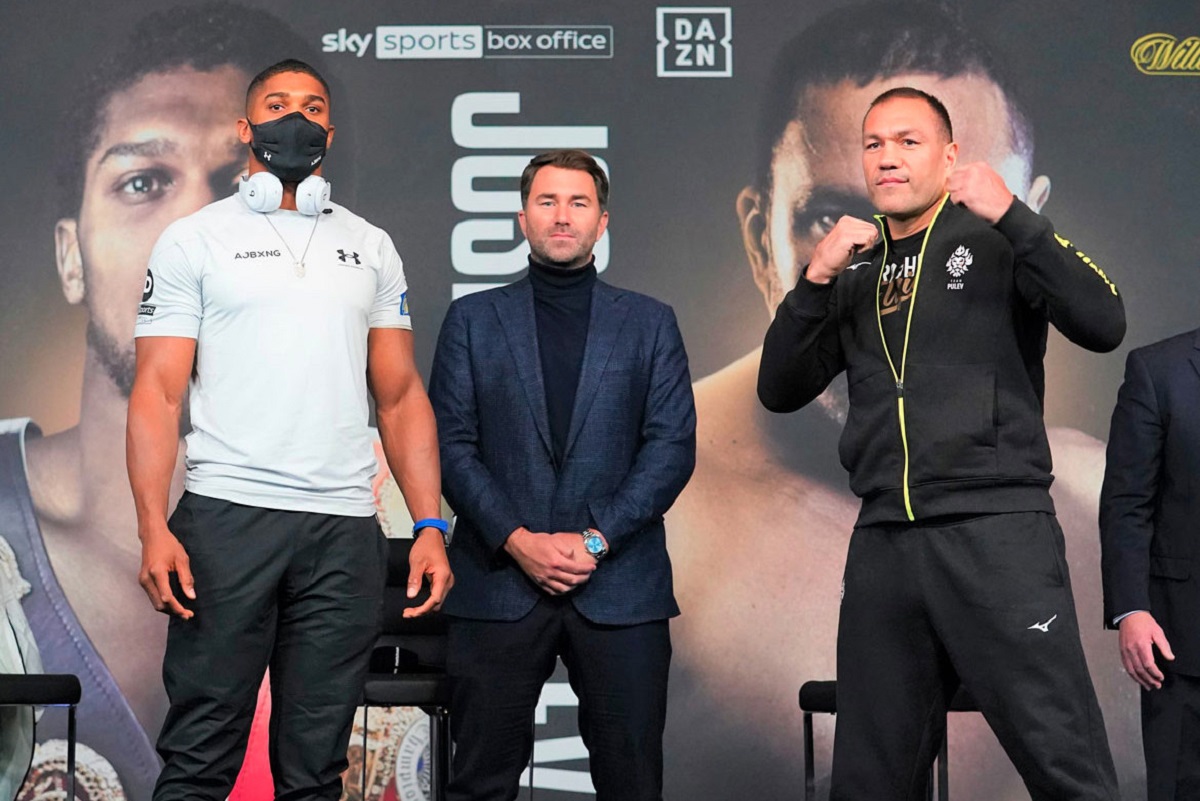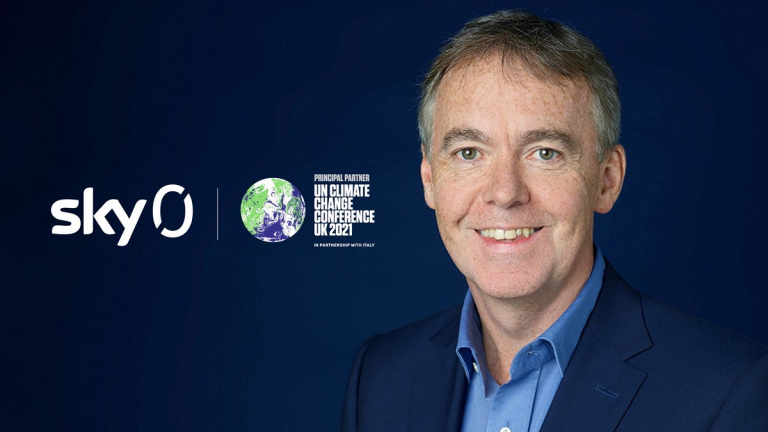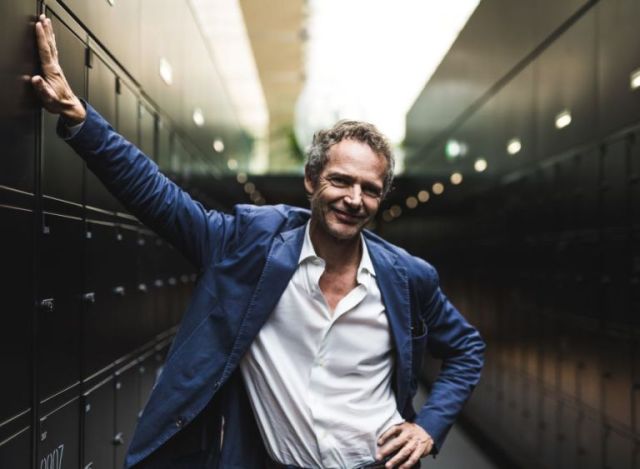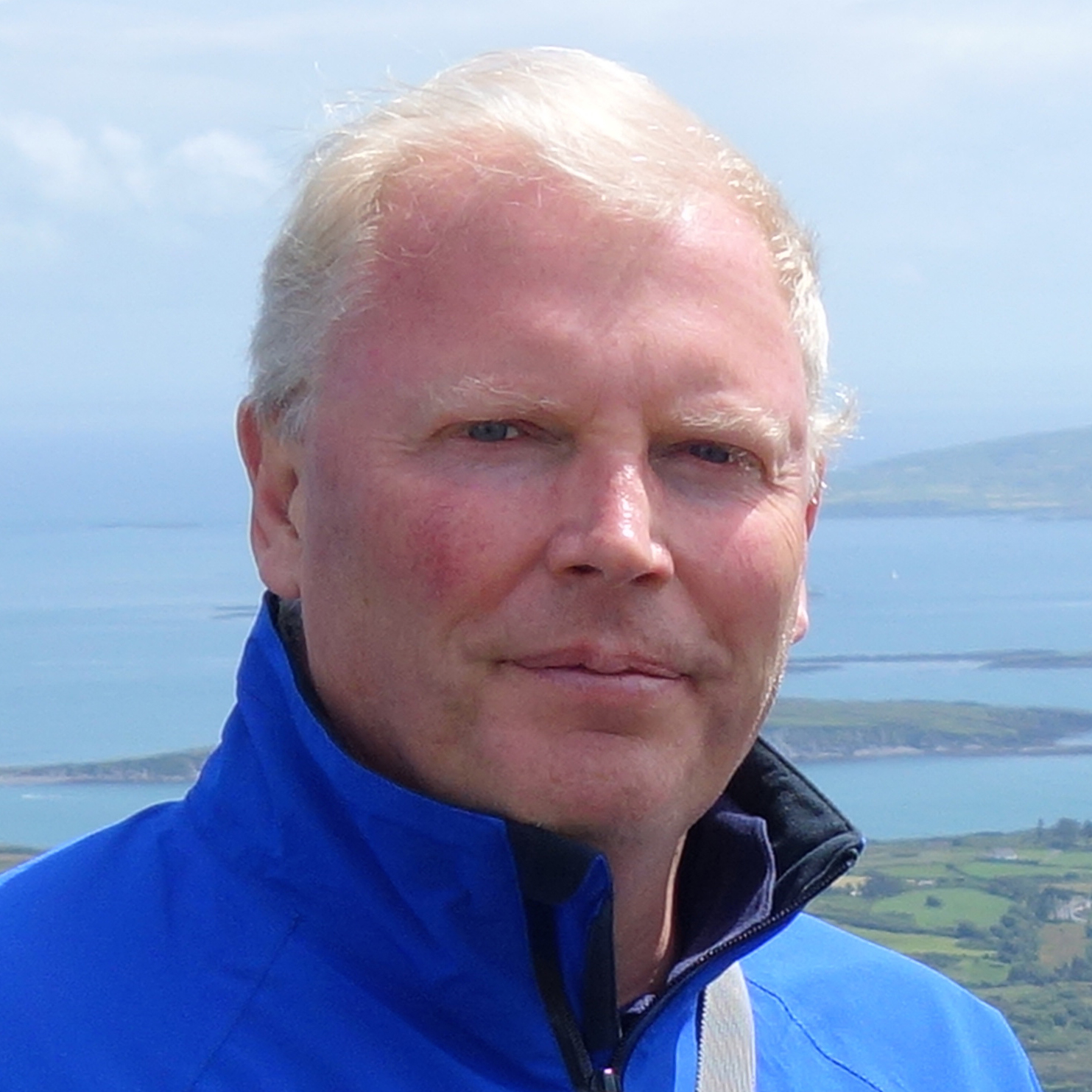Anthony Joshua’s world championship fight against Kubrat Pulev in December was the first live boxing event to achieve a 3-star albert certification for the highest standards of sustainable production.
This achievement was part of Sky Sport’s “Season of Sustainability,” a commitment from the broadcaster to reduce the environmental impact of its sports productions and work with industry partners to create change.
In February 2020, Sky pledged to go net zero carbon by 2030 — two decades ahead of the UK government’s target — and published its goal to make all its TV productions net zero within the next 10 years.
Joshua v. Pulev at Wembley’s SSE Arena became the first live Sky boxing event to be albert certified. Last year, Sky confirmed that every Premier League and EFL match broadcast live on Sky Sports this season would also receive the same 3-star standard for sustainability.

The albert certification is awarded to productions that meet the sustainable credentials of albert, the BAFTA and industry-backed UK consortium set up to tackle the environmental impact of broadcasting and inspire audiences to take action toward a more sustainable future.
“Sustainability is a new revenue driver for now — not just for the future.”
— Lucien Lapierre, Global Sports Week
Over the last year, Sky Sports has expanded its use of remote productions, helping the broadcaster reduce employee travel to live events and cut its carbon footprint. It has also worked with outside broadcast suppliers, encouraging them to #GoZero by writing in responsible business targets, such as zero single-use plastics policies. Carbon literacy training has also been offered to all Sky Sports employees and has been rolled out to presenters, commentators and pundits throughout the season.
Sky also announced recently it will be the Principal Partner and Media Partner for the COP26 international climate change summit taking place in Glasgow this November. As a Principal Partner, Sky will support the delivery of a successful and ambitious summit, working alongside the UK Government, which holds the COP26 Presidency.

“This year will require us all to focus and adapt as we accelerate our efforts to tackle the climate crisis,” said Sky Executive Chairman Jeremy Darroch. “At Sky, we believe that our voice and reach can play a vital role in empowering our customers, partners and industry peers to build a better world, because it’s the actions of business, the government and individuals that will define our generation. I hope Sky’s new Planet Test and Sustainable Production Principles will spur others to make the transition to net zero with us.”
Controlling the Production from Around the World
The first Sustainability Report Podcast of 2021 (Episode 53) discussed the challenges and opportunities presented to the live events industry as a result of pandemic restrictions.
Hosted by The Sustainability Report Editor Matthew Campelli, the podcast considered whether sporting events will actually revert to their traditional form after the pandemic. People are yearning to see their heroes compete and enjoy the spectacle with fellow revelers.
On the business side of sports, many of those behind the scenes will be itching to get back to the conference circuit to meet new people, generate new business, and make lasting connections. Thought leaders from the sports events sector discussed what we have learned over the course of the past 12 months to help us optimize the experience of live sports events in the future.

“There’s been a trend for a number of years now towards remote production of content,” said Paul Moore, Head of Innovation for Media Markets at IT services and consulting giant Atos. “However the pandemic has radically, radically accelerated that trend — and we’re never going back to the way things used to be made. For example, the teams that go out to produce a football match are much smaller than they used to be,” he said.
“Partly that’s due to COVID, of course, but it’s also because it is cheaper, more efficient and also far more sustainable. Compute is always cheaper in terms of energy consumption than travel. If you can reduce your travel, even if you need a lot more compute, you will be saving on energy and reducing your carbon footprint,” said Moore.
“Remote production is changing everything. It’s not just for sports — it’s for film studios and everything else. Film studios are almost going back to the old studio lot model — but now with ultra high quality VR backdrops rather than painted backdrops. You can now have people sitting in London or Paris controlling the production from around the world — whether that’s for news or sports, whatever,” he said.
“Also, sports organizations are realizing far more the importance of grassroots and the importance of connecting. If they want to have a deep relationship with their fans — and far fewer fans can go to the stadium — then they really need to work on this grassroots connection. And we’re seeing that. It is happening, with far more user generated content on digital platforms,” said Moore.
“These are all trends that were happening anyway — but have certainly been accelerated by COVID-19. The situation of the planet has now been identified by everyone as critical. It goes beyond sports. It’s a question of our time. Climate is really at the center of the conversation,” he said.
“There’s been a trend for a number of years now towards remote production of content. However, the pandemic has radically, radically accelerated that trend — and we’re never going back to the way things used to be made.”
— Paul Moore, Atos
“Yes, because of the pandemic, there has been some acceleration in the adoption of new practice in the way we use technology to save carbon footprint. We still have a lot to do. Even if people had the temptation to go back to what was normal before the pandemic, there is a large number of people who think that things should not be the same after the pandemic and we should take into account the fact that life should be healthy, not hell on earth,” said Moore.
“That is everyone’s responsibility and everyone has to play their part — and I only hear commitments now in that direction. It has become very high on the agenda,” he said.
“Some things that would have taken maybe five or 10 years to happen have happened in nine months. A lot of horrible things have happened in the last year, but many other things that have happened are good for the world and good for sports. At the very least, there is a silver lining that good things have come out of this,” said Moore.
Citizens Demand New Type of Acceptable Sports Product
Lucien Lapierre, Co-Founder of Paris-based Global Sports Week, also shared his views during the Sustainability Report podcast. “There were many fragilities and issues already there — this pandemic has in a way highlighted and accelerated those issues and bubbles that had to burst,” he said.
“Everyone realized they needed to accelerate change to adapt to a world where things had to be simpler and more sober as well. This is linked with the feeling that there were so many things that were not essential in the past, and what was important had to be prioritized and made privileged,” he continued.

“This pandemic has certainly been a very big challenge for sports. There have been some big winners, and losers. Among the winners are esports or hybrid sports. But on the other side, it has revealed how important sports activities are in society, even more than what was thought or said before. And I think it will strengthen sports in many ways, rather than jeopardizing it,” he said.
“Let me give you the example of the Olympic Games. For the first time since the Second World War, the Games were postponed. That was something nobody could have imagined this time last year. That happened.”
“The cost of postponing an event like that is tremendous, and if it is to be re-organized for 2021, then everyone needs to see what can be done to reduce the costs in order to make it possible.”
“The IOC has decided to limit to a certain number the entourage that comes with the athletes and really look at simplifying the privilege that is given to the whole Olympic family and go back to the principle — which is staging an amazing sports performance, but not really all the fuss around it. Instead, two elements are prioritized: the athletes and the fans,” he said.
“There are many layers of intermediation that had been built up over time that now really make no sense. Scarce resources now need to be focused on the principle thing, which is to deliver amazing sports and share it with as many people as possible.”
“This pandemic has certainly been a very big challenge for sports. There have been some big winners, and losers. Among the winners are esports or hybrid sports. But on the other side, it has revealed how important sports activities are in society, even more than what was thought or said before. And I think it will strengthen sports in many ways, rather than jeopardizing it.”
— Lucien Lapierre, Global Sports Week
“Another example is the Tour de France,” said Lapierre. “For 2020, there were very strict conditions imposed on the public not to line up along the route — which is, of course, very strange for the Tour de France.”
“For the mountain stages, the police blocked the roads so the crowds could not drive up the slopes in their cars. If they wanted to see the peloton, they had to park their cars and prepare for a long hike instead.”
“What the organizers discovered was that people adapted and accepted this situation, happy with a long walk to get to the best spot to wait for the riders. And they will keep it in the future. So instead of having hundreds of cars parked along the roads in the magnificent peaks of the Alps and Pyrenees, now you will see only the nature and the peloton riding in the middle. I think it’s a great example to show what can change.”
Wrapping up the podcast, Campelli asked Lapierre if the sports industry has changed its traditional view that seeking sustainability is a cost to the bottom line of the business. Is that mindset changing? Are people starting to see sustainability and the innovation around it as a positive investment for the future?
“Well it’s more than that,” said Lapierre. “It’s a new revenue driver for now — not just for the future.”
“Consumers, who are citizens — and especially the Gen Z — are demanding a different type of product that they feel is acceptable and compliant with everything that it takes to be sustainable. For sports stakeholders that understand this and can offer products and services that are compliant, there is an amazing opportunity to seize a better share of the business,” he said.
“And this is exactly what we’re already seeing in the sports apparel industry. People already want to change from items like sneakers that are very heavily polluting, to the ones that are made from material that can be recycled — made of natural products rather than petrochemical products,” said Lapierre.
“So I think it’s already part of the business model for the post-crisis efforts made by everyone to get back to sports. And it’s not for the future: it’s for now. It’s positive. And it’s not a burden anymore.”


